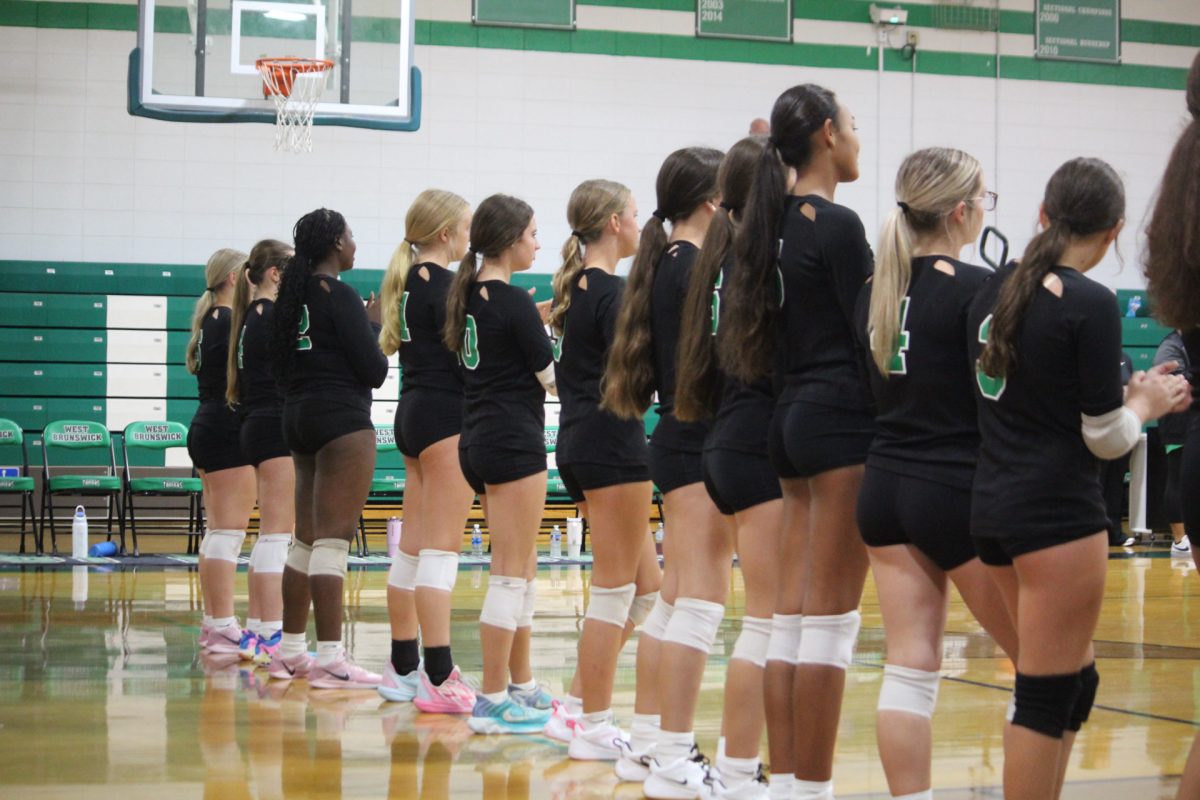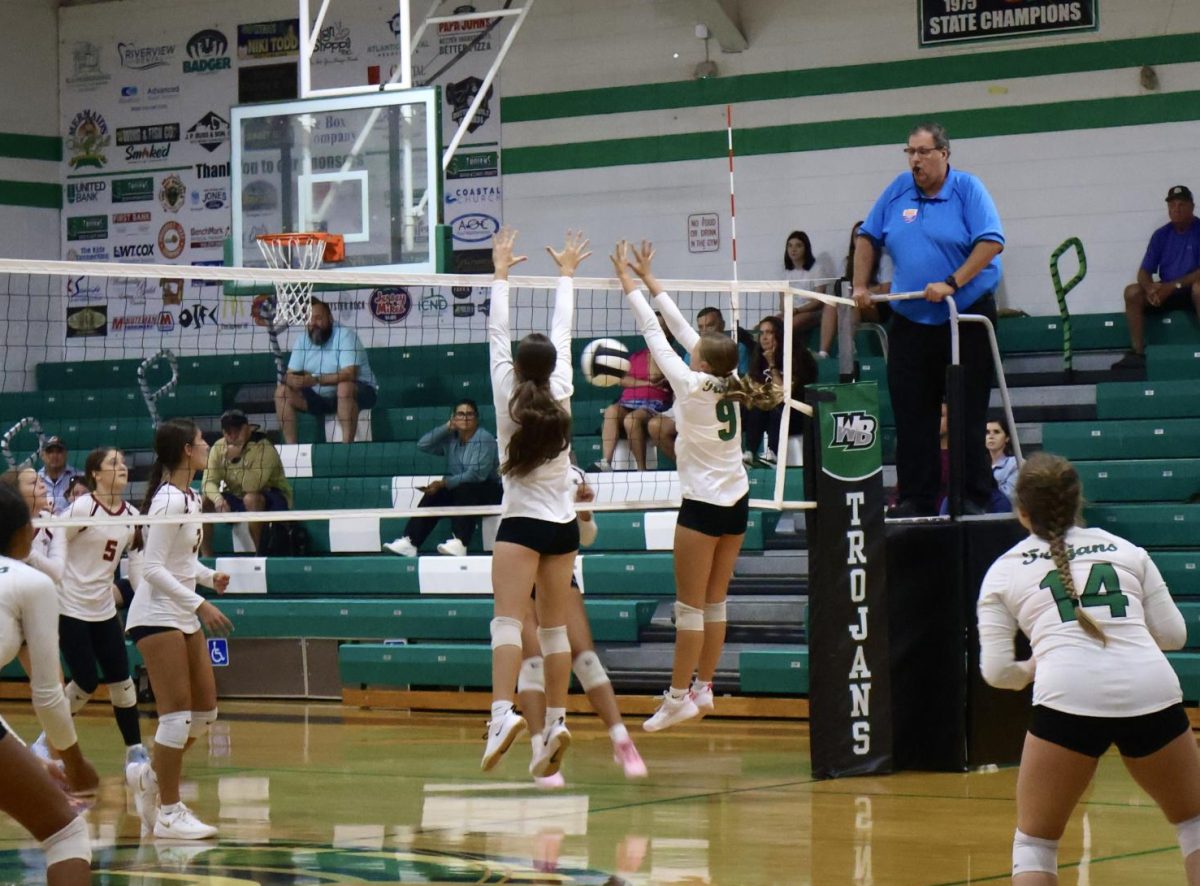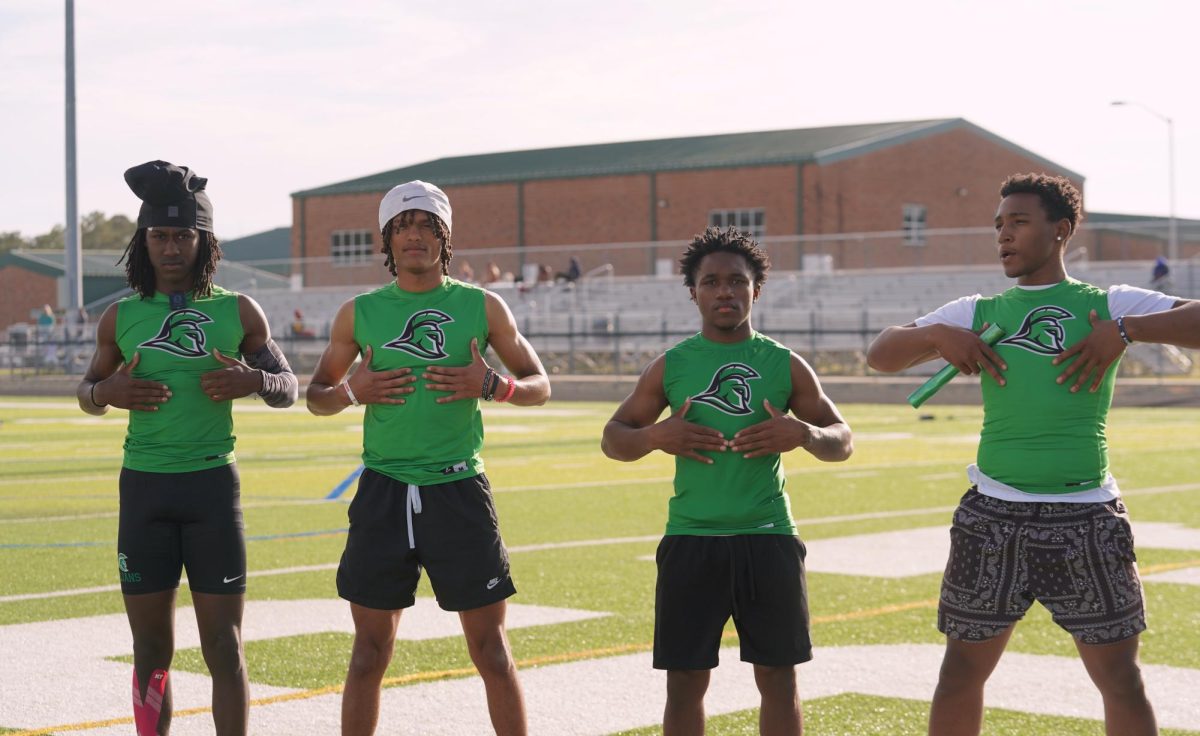Commitment, communication, concentration, control and confidence: these 5 C’s are crucial in shaping not just an athlete’s physical abilities, but their mental toughness too.
“Overall they’re good for anyone to have in anything,” said sophomore Nick Brown. “Having all five immediately gives you the upper hand on others, because not only are you prepared physically, but also mentally as well.”
It’s like setting the stage for a grand performance where each C plays a starring role. Confidence gets you trusting your moves, commitment is your promise to go hard every day, concentration keeps your head in the game, control is all about keeping your cool, and communication is the glue that holds the team together.
“Sometimes leaders aren’t gonna be your best players,” said cross country coach Jim Caraway. “Their the ones that are the most vocal, their the ones that are gonna be at practice every day, come early and stay late, first ones there last ones to leave”
Confidence
Confidence is the backbone of an athlete’s mental game. It’s like a superpower for athletes. When an athlete believes in themselves and their skills, it’s an extra boost of energy and determination. When they believe in their abilities, they’re more likely to take on challenges and push their limits.
“It definitely boosts your performance,” said Brown. “Having confidence in what your doing is not only a benefit to you, but your team too, that’s why it’s so important to have that confidence in yourself and also your teammates.”
Commitment
It’s all about dedication when it comes to commitment. Athletes with a strong commitment are more consistent in their training and effort, which leads to better performance. It’s a direct reflection of how powerful your motivation is.
“How committed a player is to their sport is definitely shown in their performance throughout the season,” said junior Braden Cossey. “Being committed doesn’t only mean your committed to yourself and your sport, but also your teammates and coaching staff.”
Concentration
The athlete’s ability to stay focused on the task at hand. It’s about blocking out distractions and staying fully present in the moment. Concentration is crucial during high-pressure moments.
“Being focused on what lies ahead is so important,” said Cossey. “If you go into the game focused and concentrate on the challenges you are facing whether it’s on the field or just in school, your going to have an advantage.”
Control
Athletes need to manage their emotions and reactions, especially during competition. Good emotional control can make the difference between winning and losing. Maintaining composure and managing emotions as an athlete is the definition of control.
“Really good athletes put really bad things behind them,” said Caraway. “They’re not worried about mistakes they made two plays back, they’re focused on controlling what can happen at that moment.”
Communication
This is the icing on the cake, the one that ties them all together. Effective communication helps a team work cohesively and can improve individual and team performance. It’s not just about talking, but also about listening and understanding.
“I cannot coach a player unless I know what’s going on with them,” said basketball coach Tanna Tilley. “Whether it’s letting me know they’re going to be late to practice, or them letting me know what’s going on and how they’re feeling on court. You can’t adjust your game plan unless you know everything. If I know what’s going on I can be more compassionate, and it’ll help build a player-coach relationship faster and make it stronger.”
Putting it all together
Although players have to be teachable in order to be coached properly, you have to be a role model in order for others to learn. Coaching is all about nurturing the 5 C’s in athlete’s. With these, players can navigate the highs and lows of competition, ultimately leading to personal growth and peak performance.
“In order to be confident in myself I need a coach that’s going to support me but also show tough love as well,” said Cossey. “I can’t be confident in myself and my team if the person coaching me isn’t uplifting and being a coach. In my opinion I believe a coach should be a role model and somebody that I can look up to. If I don’t look at you as somebody I can count to, then your not a true coach.”
In the world of sports, mastering the 5 Cs- Confidence, Commitment, Concentration, control and communication-can lead to unparalleled success. A coach who instills these values creates athletes who are not just physically capable, but mentally formidable.
“Having a coach that lacks confidence is really discouraging for an athlete,” said junior AhYanna Jackson. “You could feel like you wanna give up, because you don’t feel like you have somebody that you can lean on. So having a coach or a teammate let me know they have my back is like a reliever for me. Just knowing I’m not alone, sometimes that’s all a player needs.”




























